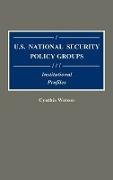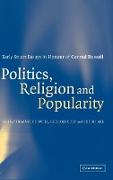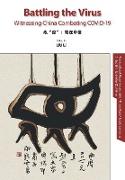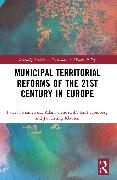U.S. National Security Policy Groups
BücherAngebote / Angebote:
This volume identifies groups of all political colorations from the establishmentarian Council on Foreign Relations to antiestablishment Greenpeace. Even the group Librarians for Nuclear Arms Control is included. Information on group activities and publications is provided, and on their finances when such information is available. Addresses and telephone numbers are listed. The research is thorough and careful. . . . The book will be of value for students, for faculty in pursuit of grants, and as a resource on public policy-making in the U.S. Choice
This reference volume discusses the phenomenal expansion in the number of participatory organizations through which the public has taken a part in U.S. national security strategy formulation. The 135 groups selected for indepth coverage are organizations having a primary interest in national security and strategy. The majority are defined by the Internal Revenue Service as not-for-profit, educational, non-partisan organizations. Each entry follows a standard format and contains an extensive amount of the following information: a brief introduction designed to familiarize the researcher with the group's basic orientation, a history of the organization, including the reasons for its creation and the names of as many major founders as can be identified, organizational structure and sources of funding, as well as membership or contribution levels and number of members or contributors, electoral politics, when appropriate, specific policy concerns and tactics, and other information. The largest part of each entry is devoted to policy interests and specific actions of the organization. The section on other information provides bibliographical citations for publications about the organization prepared by outside writers.
This unique reference tool provides a broad spectrum of information on the major public organizations that have impacted U.S. national security policy in the 1980s. It will be welcomed by scholars and students of political organizations and international affairs.
Folgt in ca. 15 Arbeitstagen




